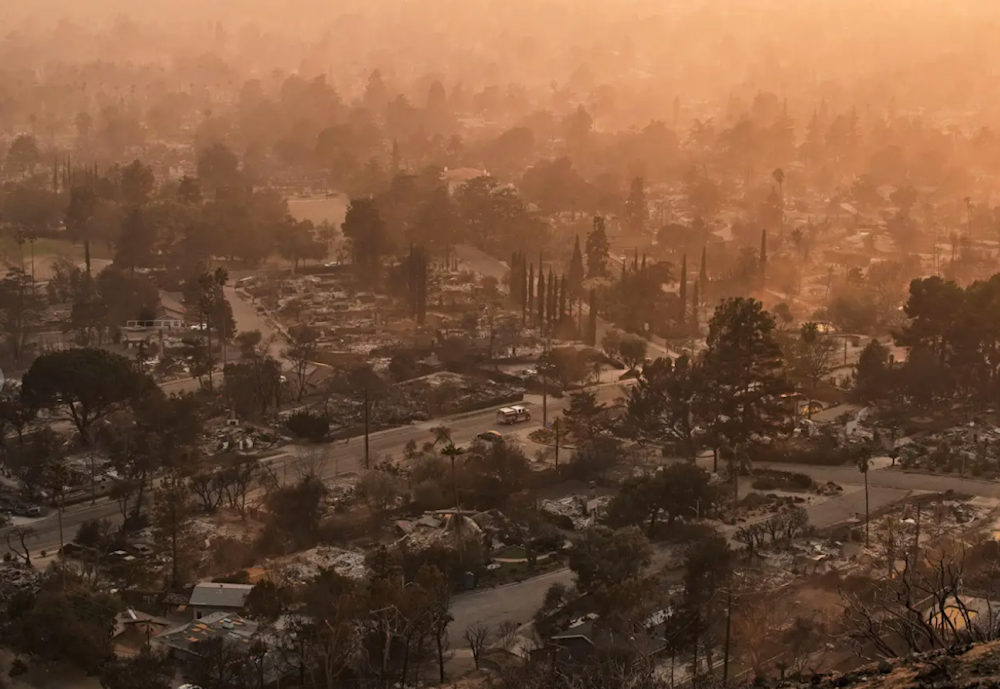US insurers brace for billions in losses from California wildfires
California's limited ability to change prices makes it a less appealing market for insurers.
-

Smoke lingers over a neighborhood devastated by the Eaton Fire on January 9, 2025. (AP)
The combined losses for major US insurers AIG (AIG), Travelers (TRV), Chubb (CB), and Allstate (ALL) from the catastrophic Los Angeles wildfires will run into billions of dollars, the companies have confirmed, as reported by Bloomberg.
TRV reported this week that losses from the January 2025 California wildfires are estimated at $1.7 billion. AIG said it expects losses of $500 million from the fires, which destroyed over 16,000 homes and businesses last month.
ALL said last week that the January California wildfires and related losses are expected to be about $1.1 billion. Chubb meanwhile said losses would reach $1.5 billion despite it and others cutting their exposure to California in recent years.
Allstate said the $1.1 billion hit could have been higher had it not been for a decision to reduce market share beginning in 2007, which has since halved. AIG pulled back from California in 2022 when it stopped offering new policies to most homeowners in the state.
According to Moody’s, the high value of homes and businesses in the affected areas would mean the insured losses will be among the largest in California’s history.
JPMorgan analysts said in a note of January 9 that insured losses from the event could exceed $20 billion, while more recent estimates put the bill for insurers at closer to $40 billion.
Insurers in desperate straits
California's $1 billion charge on private insurers to help pay out wildfire claims in its state-created safety net program has increased the spotlight on the industry's issues in a sector that is fast losing attractiveness, experts said, as reported by Reuters.
Stringent rules and periodic wildfires have driven several insurers away from the state in recent years, as businesses retreat from riskier regions where regular natural catastrophes cause billions of dollars in damages.
According to analysts at Roth MKM, "The insurance regulatory environment in California is not very friendly to the industry and major changes will be needed if the state wants the private market to resume writing new business."
The horrific fire that ravaged entire communities in Los Angeles in January is projected to be the most expensive wildfire in US history for the insurance business, with some estimating damages of up to $35 billion.
Furthermore, businesses will be compelled to donate $1 billion to California's Fair Access to Insurance Requirements (FAIR) plan — often known as the "insurer of last resort" — which provides coverage to people who cannot obtain private insurance.
In recent years, the business has suffered from growing losses caused by extreme weather occurrences. As of September 2024, there were 451,799 FAIR Plan policies in place, a 41% increase from 2023.
"California remains one of the most resilient and forward-thinking insurance markets in the world," a representative for the California Department of Insurance stated.
"Insurance companies recognize the strength of California's economy and its leadership in climate resilience and risk reduction."
Concerns about increased disaster losses have also weighed on investors, with the S&P property and insurance index rising only 0.2% this year, trailing the wider financial industry's 6.2% increase.

 3 Min Read
3 Min Read








